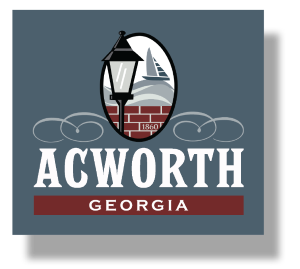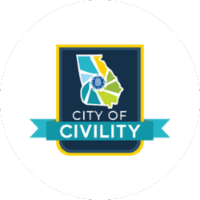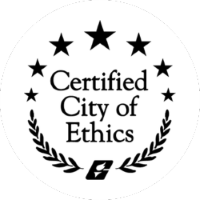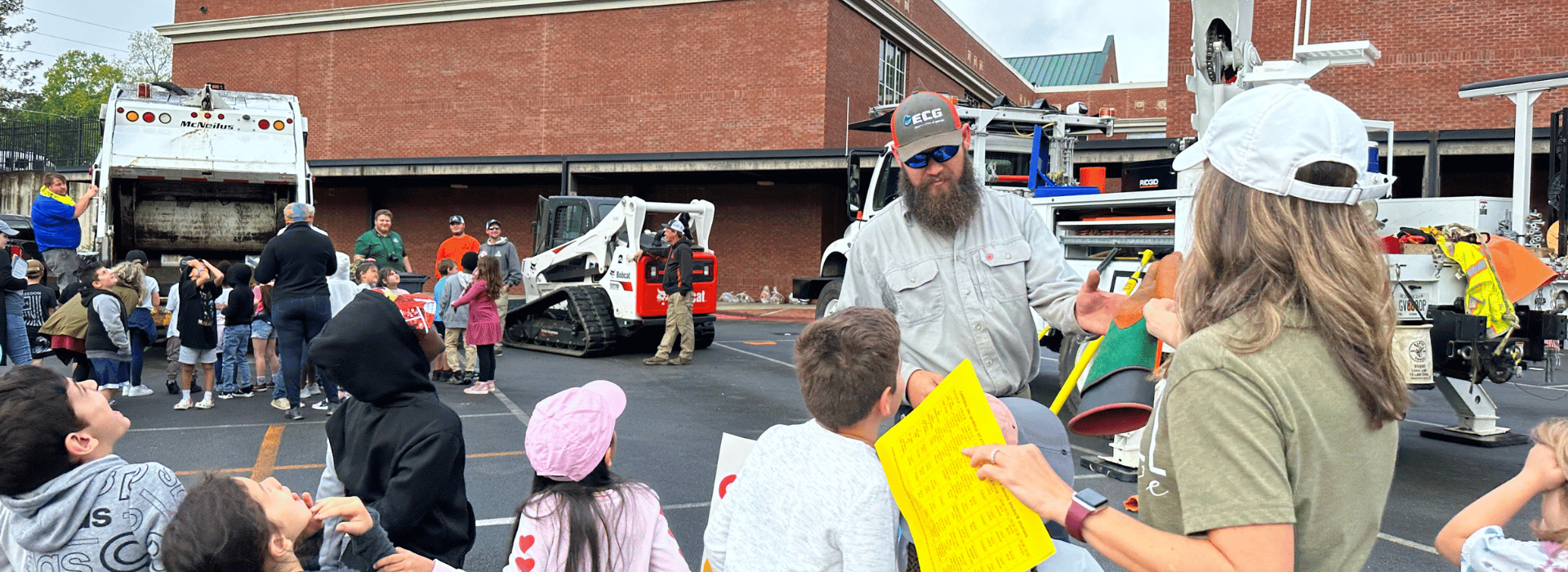
Hours:
Monday through Friday
8:00 AM – 5:00 PM
Address:
Acworth Stormwater
4402 Acworth Industrial Dr NW,
Acworth, GA 30101
Contact List:
Stormwater Management

The Stormwater Division is responsible for maintaining existing infrastructure and replacing, adding, and installing new Stormwater infrastructure. We are responsible for many things including inspecting and maintaining our Stormwater system, complying with state and federal MS4 regulations and inspections, keeping businesses, contractors, and citizens in compliance with Stormwater regulations, and looking after city, state, and federal waterways. In addition, we educate everyone on the many ways we can work together to keep our waterways clean.
If you are experiencing a stormwater issue or witness an illicit discharge into any storm drain, call the Public Works Department at (770) 974-5233 or email ttallent@acworth-ga.gov.
0
6
- The aging Stormwater Infrastructure throughout the city
- Regulating flood control in new developments
- Keeping waterways clean
It’s important to dispose of hazardous home waste safely to keep our stormwater clean! Find more information about with our Guide to Disposal of Household Hazardous Waste for City of
Acworth Residents at the link below.
Guide to Disposal of Household Hazardous Waste for City of Acworth Residents
What is an illicit discharge?
An illicit discharge is any discharge into the City’s storm sewer system that is not composed entirely of stormwater or uncontaminated groundwater. Such discharges are considered “illicit” because the storm system is not designed to accept, process, or discharge such non-stormwater wastes of contaminants. Illicit discharges include dumping of motor vehicle fluids, hazardous waste (industrial or household), paint, grass clippings, leaf litter, or animal waste. The illicit discharge may be a deliberate discharge, or runoff from a construction site. It must be stopped in order to ensure that our stormwater discharges do not pollute waters of the state.
To prevent illicit discharges to the stormwater system and to protect water quality, keep in mind the following rules:
1. Never dump anything in a storm drain or into a drainage ditch.
2. Clean up after your pet. Pet waste is a significant source of pathogens.
3. Throw litter in its proper place. If you see garbage near a storm drain, pick it up.
4. Properly dispose of household hazardous waste at designated locations.
5. Regularly check your vehicles for leaks (and repair them).
6. Compost yard waste
7. Recycle motor oil and other automotive fluids
8. Use fertilizers and pesticides only when needed and always follow the label instructions.
9. Wash vehicles in the yard, not on pavement. Better yet, take your car to a carwash, where all wastewater flows into the sanitary sewer system for treatment.
10. Report illegal dumping immediately
Stormwater Management is the controlling of stormwater through a variety of control structures. Drainage facilities are studied and constructed based on hydraulic studies, all to minimize flooding and erosion. Detention facilities and retainage ponds are created near development to capture storm that has entered the underground drainage conveyance system. These ponds store the water for 24 to 48 hours and release same to minimize or eliminate flooding. The release of water from these man-made ponds can be regulated over a set time period, depending upon topography, development, and rainfall totals for a particular region of drainage basin.
For additional information on Stormwater Runoff please visit:
Stormwater Infrastructure Responsibility
According to City Legal Counsel, generally, if the subdivision or property plat includes any of the following statements, and/or indicates a DE (drainage easement), then the responsibility is private (HOA or private homeowner): Owner’s Acknowledgement: “acknowledges that this plat was made from an actual survey and dedicated to the use of the Public forever, all streets, alleys, parks, water courses, drains, easements, and public places hereon shown for the purpose and consideration herein expressed.” OR City’s Acknowledgement: “subject to the installation and dedication of all streets, utilities, easements and other improvements in accordance with the standard design specifications.”
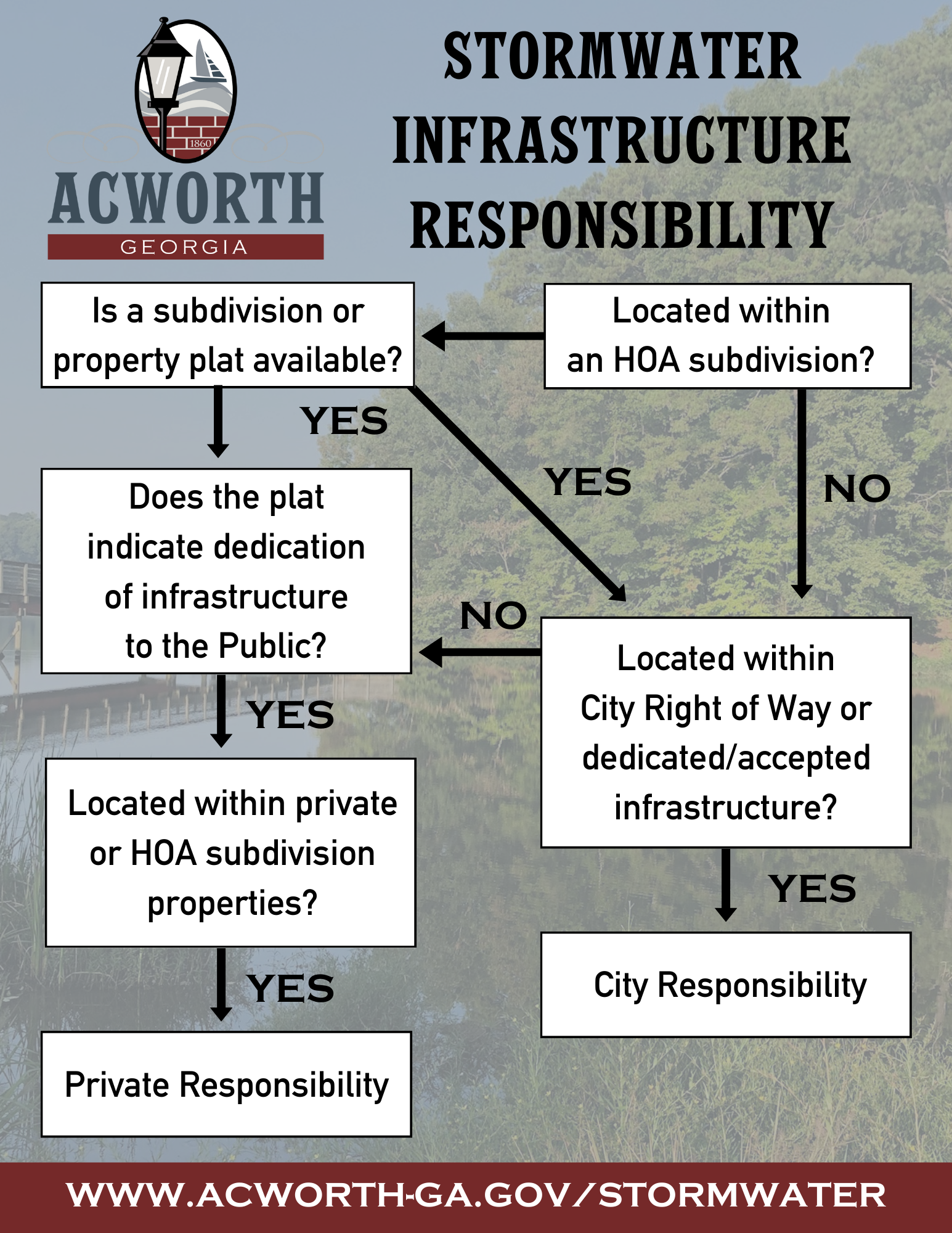
City of Acworth Stormwater Ordinance
Sec. 50-152. – Scope of responsibility for stormwater management systems and facilities. (a)The city owns or has rights established by written agreements which allow it to operate, maintain, improve and access those stormwater management systems and facilities which are located: (1)Within public road rights-of-way; (2)On private property but within easements granted to, and accepted by, the city, or are otherwise permitted to be located on such private property by written agreements for rights-ofentry, rights-of-access, rights-of-use or other permanent provisions for operation, maintenance, improvement and access to the stormwater management system facilities located thereon; (3)On private property but within a public water influence zone; (4)On land dedicated to, and accepted by, the city solely for the operation, maintenance, improvement and access to the stormwater management systems and facilities located thereon; or (5)On public land which is owned by the city and/or land of another governmental entity upon which the city has agreements providing for the operation, maintenance, improvement and access to the stormwater management systems and facilities located thereon. (b)Operation, maintenance and/or improvement of stormwater management systems and facilities which are located on private or public property not owned by the city, and for which there has been no written agreement granting easements, rights-of-entry, rights-of-access, rightsof-use or other form of dedication thereof to the city for operation, maintenance, improvement and access of such stormwater management and systems and facilities shall be and remain the legal responsibility of the property owner, except as otherwise provided for by the state and federal laws and regulations. (c)It is the express intent of this article to protect the public health, safety and welfare of people and property in general, but not to create any special duty or relationship with any individual person, or to any specific property within or outside the boundaries of the city. The city expressly reserves the right to assert all available immunities and defenses in any action seeking to impose monetary damages or equitable remedies upon the city, its elected officials, officers, employees and agents arising out of any alleged failure or breach of duty or relationship. (d)If any permit, plan approval, inspection or similar act is required by the city as a condition precedent to any activity or change upon property not owned by the city pursuant to this or any other regulatory ordinance, regulation or rule of the city, or under federal or state law, the issuance of such permit, plan approval or inspection shall not be deemed to constitute a warranty, express or implied, nor shall it afford the basis for any action, including any action based on failure to permit, negligent issuance of a permit, negligent plan approval, or negligent maintenance of any permitted stormwater management system or facility not expressly dedicated to and accepted by the city for further maintenance in an action seeking the imposition of money damages or equitable remedies against the city, its commissioners, officers, employees or agents. ( Ord. No. 2022-15 , § 1, 6-16-2022)
Q: Is it normal to have running water across my lawn in a storm?
A: Yes. Many homes have stormwater “swales” in their lawns and yards. In dry conditions, these swales may not be noticed but as it rains, stormwater will flow through these small channels. These swales carry water runoff from driveways, rooftops, and other upstream properties to the street. Gutters then carry the water to underground drainage systems that fill the detention facilities for a temporary 24-48 hour storage duration.
Q: Why would you want to store stormwater?
A: Storing stormwater controls downstream flooding. However, detention facilities do not totally stop creeks from filling with water, but do help control the amount and timing of stormwater that a stream will receive during heavy events. A stream will still flow at full bank in heavy rainfall; however, the same stream without a detention facility would crest its banks and could flood nearby structures and properties.
Q: What can you pour into the storm drains in the streets?
A: Nothing! If it is not stormwater, it doesn’t belong in a storm drain! Every time you wash your car you are dumping soap into the stream, as well as chlorine from the water tap. Any oil that has leaked out onto your driveway finds its way to the storm drain as well. Even fertilizers applied to your lawn can affect the ecology of the local streams. If possible minimize these pollutants, it will help to keep creeks and lake clean.
Storm water runoff starts from your roof, your lawn, your gutters, and our streets. It ends up in our local streams, creeks, and lakes. The contamination load that is carried into these waterways have a significant effect on local wildlife as well as community recreation. That’s why it’s important to minimize pollutants and contaminants in storm water runoff.
